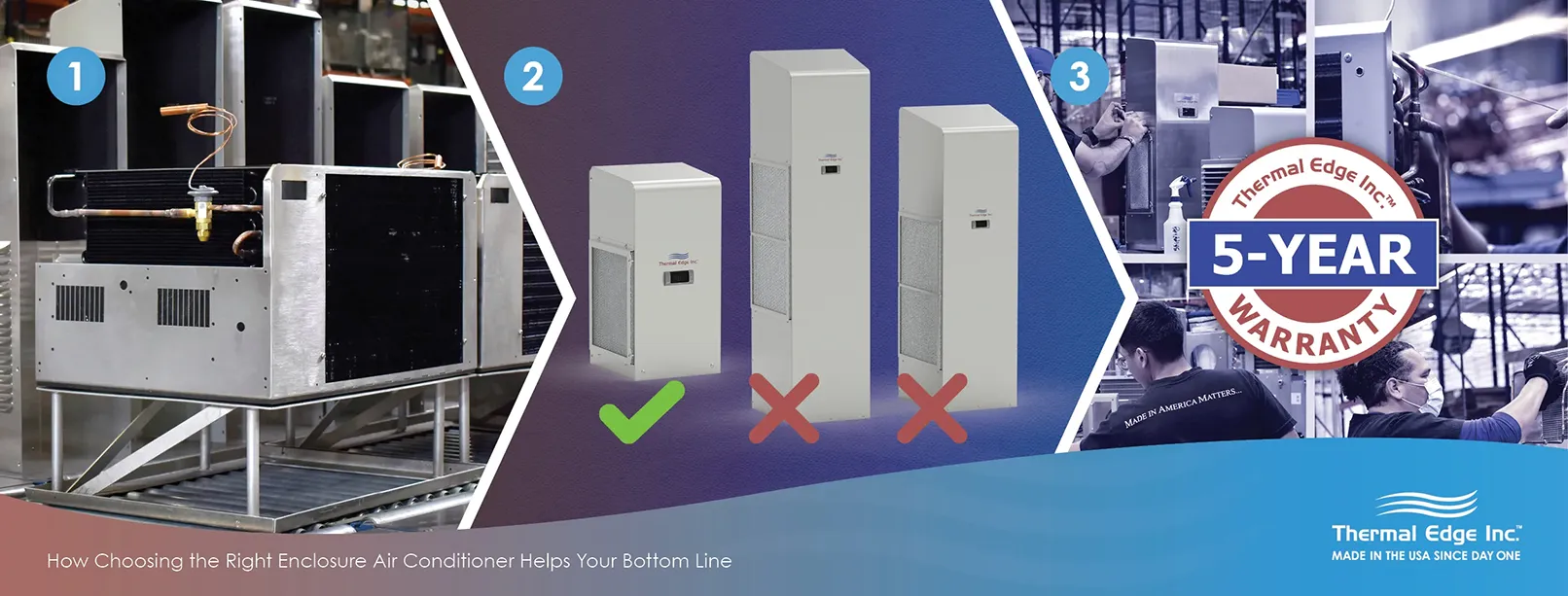How Choosing the Right Enclosure Air Conditioner Helps Your Bottom Line

Choosing the right enclosure air conditioner involves more than just selecting a unit with adequate capacity. It’s important to consider the energy efficiency of the air conditioner as well as its long-term reliability.
While in many instances it is essential that enclosure air conditioners are used to keep electrical enclosures cool, the impact of running costs should be considered, especially in organizations that have large electrical distribution systems and use many enclosure air conditioners.
Another factor to bear in mind is the reliability of the air conditioner along with the ability to remotely monitor its condition, because the life of electrical equipment is directly related to its temperature. Unreliable operation that leads to excessive enclosure temperatures is likely to result in shorter equipment life, resulting in breakdowns and high outage costs. Here are three steps to take when selecting an enclosure air conditioner.
1. Seek an Energy Efficient Design
The power consumption of an air conditioner depends on a number of factors and can vary considerably based on how energy efficient the design is. Look for air conditioners that use several energy saving features, such as the use of high COP rotary compressors fitted with energy saving run capacitors and a thermal expansion valve that is used instead of a capillary tube.
A condensate management system further reduces energy consumption by cooling the hot refrigeration gas after compression in the cold condensate recovered from the evaporator. This system boils off the condensate so that enclosure air conditioners do not require a messy condensate drain.
An enclosure air conditioner with these measures in place can use up to 50 percent less power than equivalent units from major competitors.
2. Choose the Right Capacity
Take time to select an enclosure air conditioner with the right capacity. While there is a temptation to specify a large unit on the basis that it will always have sufficient capacity, the unit will be over-powered and cycle frequently, leading to the possibility of early failure. It will also cause the temperature in the enclosure to cycle excessively and use more power. It’s far better to choose a correctly sized unit that will have a longer running cycle yet with adequate capacity for peak loads.
Take care to verify the capacity of the enclosure air conditioner at the maximum ambient temperature that’s expected. The cooling capacity of an air conditioner is reduced at higher ambient temperatures. Some manufacturers rate their air conditioners at different ambient temperatures than others. It’s best to use an online BTUH calculator to choose the right size air conditioner.
3. Consider Reliability and Long Equipment Life
Electrical equipment is sensitive to high temperatures and there’s abundant evidence that shows the life of electrical equipment is severely affected if equipment is operated at or above its thermal limits.
Consequences of such operation include nuisance tripping, faulty operation of sensitive equipment, and unexpected failures. Apart from the direct repair costs arising from these incidents, the potential financial losses due to plant outage and downtime dwarf those costs. For this reason, it’s very important that enclosure air conditioners are reliable and, furthermore, that their condition is remotely monitored so that maintenance personnel are informed in good time of any potential issues.
Keep Costs Down with Thermal Edge
Besides being energy efficient, Thermal Edge enclosure air conditioners are designed to provide trouble free operation. Models are available that comply with NEMA 12, 4 and 4X enclosure sealing requirements, and materials of construction available include powder coated steel and stainless steel.
Before purchasing your next enclosure air conditioners speak to our experts and allow them to demonstrate how Thermal Edge enclosure air conditioners will help your bottom line.

